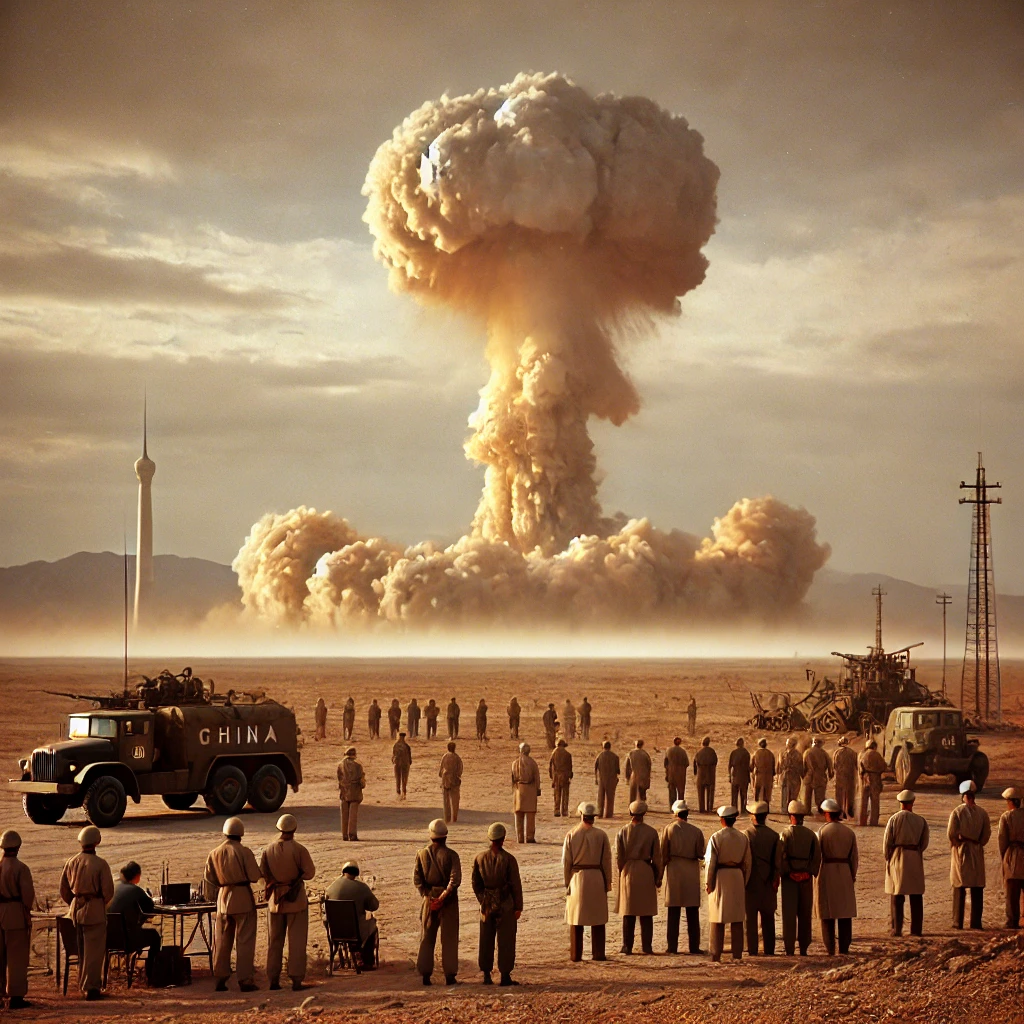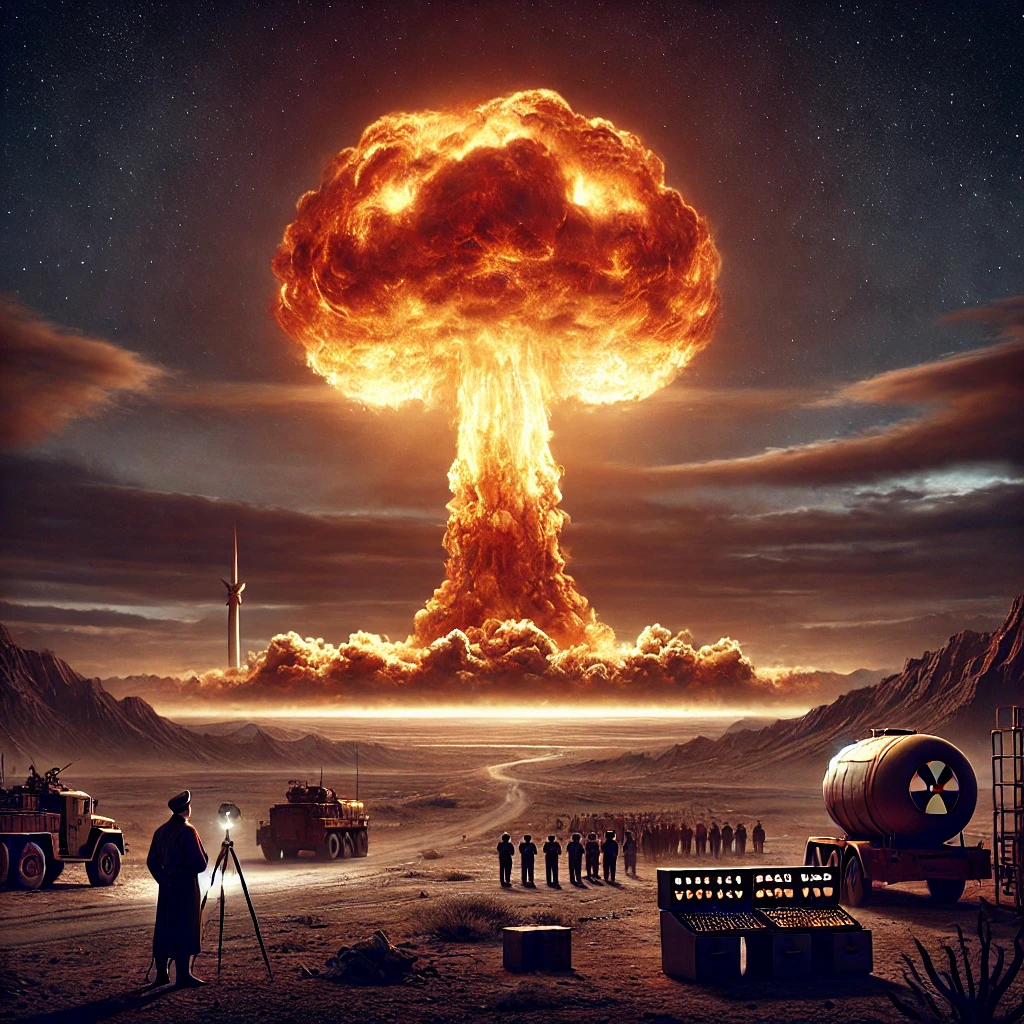On October 16, 1964, China successfully detonated its first atomic bomb, marking a significant moment in the global nuclear arms race. This event not only showcased China’s growing military capabilities but also transformed the geopolitical landscape during a time of intense rivalry and tension among world powers. The successful test solidified China’s position as a formidable player in international politics and initiated a new chapter in the Cold War.

The Context of Nuclear Development
The development of nuclear weapons became a priority for many countries in the mid-20th century, driven by the desire for national security and global influence. Following the bombings of Hiroshima and Nagasaki in 1945, the United States emerged as the first nuclear power, prompting a rush among other nations to develop their own arsenals. The Soviet Union followed suit, successfully testing its first atomic bomb in 1949, which intensified the arms race and heightened fears of nuclear confrontation.
China’s quest for nuclear capability was influenced by a combination of factors, including its desire to assert itself as a major world power and to strengthen its security against perceived threats, particularly from the United States and the Soviet Union. The Chinese leadership recognized that possessing nuclear weapons would enhance its standing on the global stage and provide a deterrent against foreign aggression.

The Successful Detonation
On October 16, 1964, the People’s Republic of China conducted its first successful nuclear test at the Lop Nur Test Site in Xinjiang. The bomb, code-named “596,” had an estimated yield of around 22 kilotons. The successful detonation was celebrated as a major achievement by the Chinese government and was seen as a demonstration of the nation’s technological progress and military strength.
The test was conducted amid a backdrop of political tensions, both domestically and internationally. At the time, China was navigating complex relationships with both the Soviet Union and the United States, as well as dealing with internal political struggles. The successful detonation of an atomic bomb served to unify the nation under the banner of nationalism and technological achievement, reinforcing the Communist Party’s legitimacy.
Global Reactions and Consequences
The successful test drew immediate reactions from around the world, particularly from the United States and its allies, who viewed China’s nuclear capabilities as a significant threat. The U.S. government responded with heightened surveillance and military preparedness, leading to increased tensions in the Asia-Pacific region. The nuclear test also influenced global arms control discussions and prompted other nations to reassess their own nuclear policies.

China’s entry into the nuclear club altered the dynamics of the Cold War. With the successful detonation of its first atomic bomb, China positioned itself as a third major nuclear power, alongside the United States and the Soviet Union. This development prompted a reevaluation of military strategies and alliances in Asia, as countries sought to navigate the new balance of power.
Lasting Impact on International Relations
The 1964 nuclear test had a profound impact on China’s foreign policy and its relationships with other nations. It bolstered China’s confidence and assertiveness on the world stage, leading to a more proactive approach in its foreign affairs. In the years that followed, China would become more involved in international diplomacy, often emphasizing its role as a leader of the developing world and a counterbalance to Western influence.
The detonation also laid the groundwork for China’s ongoing nuclear strategy, which has evolved over the decades. Today, China is recognized as a significant nuclear power, with a growing arsenal and modernized capabilities. The nation’s nuclear policies continue to shape discussions around arms control, non-proliferation, and regional security, reflecting the lasting impact of its successful atomic bomb test in 1964.
China’s successful detonation of its first atomic bomb on October 16, 1964, marked a pivotal moment in the history of nuclear weapons and international relations. The event not only showcased China’s technological advancements but also signaled its emergence as a major global power. As we reflect on this historic milestone, we recognize the complex legacy of nuclear weapons and their enduring influence on global politics, security, and diplomacy. The ramifications of China’s entry into the nuclear arms race continue to resonate, underscoring the challenges and responsibilities that come with nuclear capabilities in an interconnected world.
